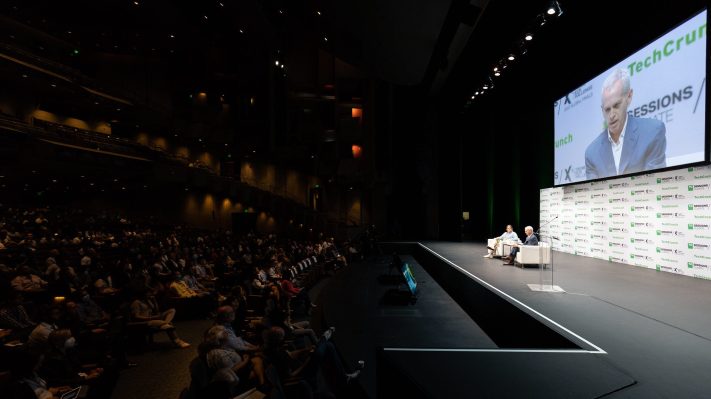Thanks in no small part to the fossil-fueled cult of obstructionism, we’re on track to blow past the 1.5 degrees Celsius global-warming threshold laid out in the 2016 Paris Agreement. Without sweeping change, we can expect “more melting ice, higher sea levels, more heatwaves and other extreme weather,” per the World Meteorological Organization. And that’ll only be the beginning.
The scientific community has made its demands clear, but emissions are still rising, politicians are failing to act, and the oil industry is getting richer. It’s all horribly distressing, and that’s why I doubt you’ll blame me for blurting out, “How doomed are we?” the moment I sat down with renowned climate modeling expert William Collins at TC Sessions: Climate.
Collins met my question with nuance. “I think we are starting to see governments get quite serious about addressing climate change,” he said, and pointed us toward national and international assessments that dig into this topic at length.
Collins directs Berkeley Lab’s Climate and Ecosystem Sciences Division and its Carbon Negative Initiative. He’s also a lead author of several Intergovernmental Panel on Climate Change (IPCC) assessments. (Full video of the included session below.)
“We’re very fortunate that the current administration in the U.S. is also very committed to reducing our footprint nationally,” said Collins, though Congress continues to mightily drag its feet. That aside, “those are smart steps,” Collins said. “We’re going to have to hurry to make a big dent in climate change.”
What can make a difference in the short term? For one: cracking down on things like methane and soot.
“Some of the chemicals that humankind puts into the atmosphere that cause global warming don’t last very long,” he said. “For example, methane only lasts in the Earth’s atmosphere for about a decade. Soot, the byproduct of diesel combustion, lasts for less than a week.”
By controlling these emissions, “you’ll see benefits on time scales of a few years, which is really great,” he said.
On the other hand, carbon offsets are, “as far as we can tell, a feel-good measure,” per Collins. And popular tree-focused programs, in particular, are “fool’s gold.”
“It’s essentially impossible to monitor whether or not the stuff is going to stay in the trees,” he said, adding, “The minute you have a forest fire — game over.”
Collins also weighed in on congestion pricing (to limit cars in cities) and direct-air carbon capture tech. You can watch the full interview below.
